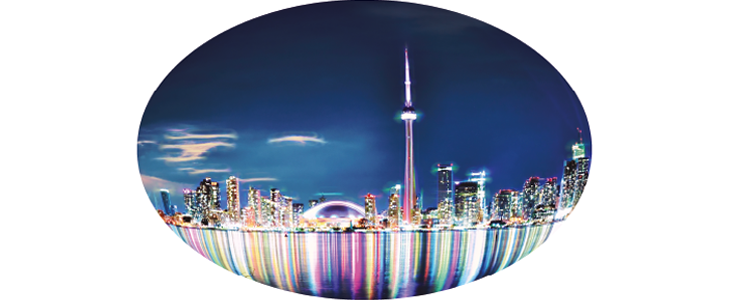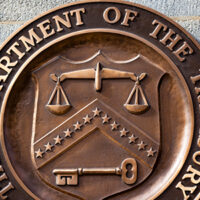
Canada—despite facing huge money laundering challenges in the real estate, human trafficking, casino and cannabis sectors—is one of the biggest anti-money laundering (AML) pioneers among North American countries. Canada’s financial intelligence unit, the Financial Transactions and Reports Analysis Centre of Canada (FINTRAC), has a vision to deter money laundering, terrorist financing, proliferation financing and other related offenses effectively. Therefore, Canada actively seeks initiatives to stop “snow washing” in order to identify ultimate beneficial owners in the real estate sector, creates mass awareness of human trafficking, and to have control over casinos in British Columbia, horse racing and illicit cannabis trading.
Snow Washing: Money Laundering in Real Estate Business
“Snow washing” is the practice of hiding illegitimate financial transactions (often for purposes of tax evasion) in Canada. It is a way of leveraging Canada’s prudent reputation and solid economy to make suspect transactions seem legitimate. While publicly traded firms in Canada are required to disclose major shareholders, private companies need only note their directors, allowing those who own, control or benefit from the firm to remain in the shadows.1 The lack of transparency hinders law enforcement and tax authorities’ ability to investigate proceeds of crime. The practice effectively makes Canada a tax haven along with countries such as the British Virgin Islands, Panama and the Bahamas. Money laundering contributes to artificial price bubbles and makes housing unaffordable for Canadians. For instance, the expert panel in British Columbia indicated that money laundering through British Columbia real estate has contributed to a 5% increase in the price of housing.2 Snow washing becomes more obvious in certain cases, such as when foreign students with no known income buy homes worth millions of dollars in Vancouver.3
Gatekeepers and Shell Companies: The Laundromat
The movie The Laundromat is about a big law firm, Mossack Fonseca, which was based in Panama. The vast majority of its clients (90%) were big law firms and accounting firms in Germany, Canada, Hong Kong, China and the United Kingdom that asked them to create shell and shelf companies. Historically, gatekeepers have always remained a focal point because of such services. Reports say that one of China’s most high profile politically exposed persons (PEPs)—whose father is now in a Chinese prison after being given a life sentence in 2013 and seems to have been featured in The Laundromat—has taken up residency in Canada. This PEP is reportedly working as a business analyst for a Canadian company with deep ties in China.4
All Roads Lead to Rome—British Columbia Once Again in Limelight
Money laundering has been in the spotlight in British Columbia, a result of revelations from a 2017 Postmedia investigation that found potentially millions of dollars were being laundered through lower mainland casinos. Vancouver is a city already under scrutiny for the role its casinos have played as long-running “laundromats” and the torrent of foreign cash that fueled Canada’s most expensive real estate market. The amount of money being laundered in British Columbia is more than anyone predicted. Although Ottawa recommended an increased gambling regulation requiring officers to have a 24/7 presence in major lower mainland casinos, this recommendation awaits implementation.
In real estate alone, an estimated $5 billion may have been laundered in 2018 in the province. This is how Vancouver became the world’s laundromat for foreign organized crime.5 Vancouver has become a hub for dirty money, tax evasion and a place to park foreign cash of unknown origin. Reports revealed how casinos accepted millions in cash often stuffed into hockey bags and suitcases for years, how gangsters paid auto leases with proceeds of crime and, most recently, how a thriving grey market in Vancouver-to-China luxury car exports sent millions of dollars in sales-tax refunds to overseas buyers.
Ontario: Target Zone for Human Trafficking and Horse Racing
Human trafficking is the fastest-growing form of crime in AML today. It is a real tragedy in Canadian cities and it happens in Canadian communities as well. More than two-thirds of police-reported human trafficking violations in Canada occur inside the province of Ontario. Toronto has acted as a hub over the past couple of years for a number of human trafficking routes, as victims of sexual exploitation, forced labor and forced marriage were moved between provinces or brought into and out of Canada. However, it is heartening to note that tone from the top is already present in this fight. Ontario is investing $20 million to fight human trafficking. Steps have already been taken by the federal and provincial government to create mass awareness of this atrocity and, as a result, a 24/7 hotline has been launched to report any suspicious activities relating to human trafficking.
Although the horse racing industry is licensed, regulated and receives a significant amount of public funding, it lacks transparency and public accountability
Like human trafficking, horse racing also has a significant presence in Canada. While it is legal, this sector is vulnerable to money laundering, but not accountable by any regulatory body to monitor its operations for this type of crime. Although the horse racing industry is licensed, regulated and receives a significant amount of public funding, it lacks transparency and public accountability.6 Ontario Racing Management, which supports operations for Ontario Racing’s Board of Directors, already prepared a report containing nine recommendations with 16 action items to address audit findings.7
Illicit Cannabis Trading: Drug Trade Moves From Street to Dark Web and Cryptocurrencies
Youngsters are shopping for drugs on the dark web, accessible not through traditional search engines but by way of special browsers and software that conceal IP addresses and make users harder to trace. These drug markets are clandestine dispensaries of illicit and dangerous substances that are sold in exchange for cryptocurrencies, such as bitcoin. They pose a challenging front in the fight against the opioid crisis for law enforcement agencies. For financial institutions, the time is ripe enough to gain the visibility and expertise to mitigate risk exposure from this new asset class. There are growing indications that the drug trade is increasingly moving to the dark web. Statistics claim illicit sales of cannabis alone would add around 0.4% to its GDP. Professional money laundering networks with ties to China, the Middle East, Colombia and Mexico are now plaguing Vancouver, Toronto and Montreal. Late response to these growing risks may worsen the situation.8
Silver Lining: FINTRAC Is More Active Now
FINTRAC facilitates the detection, prevention and deterrence of money laundering and terrorist financing, while ensuring the protection of personal information under its control. Specifically, through introduction of the Proceeds of Crime (Money Laundering) and Terrorist Financing Act (PCMLTFA), FINTRAC aims to assist in fulfilling Canada’s international duty to prevent transnational crime, particularly money laundering and terrorist financing. Recently, FINTRAC published certain changes to PCMLTFA. As a result, FINTRAC is required to name the reporting entity publicly, the nature of its violation of the PCMLTFA and the amount of the penalty imposed. In addition, FINTRAC is focusing on unregistered money services businesses (MSBs) in Canada. Their investigation identified that cannabis dispensaries not federally licensed to produce and/or sell cannabis in Canada used Moxipay (an unregistered Edmonton-based MSB) to transfer and receive funds.9 FINTRAC provides intelligence on the money trail to law enforcement and the national security agencies—information that would not be readily available elsewhere. While this information is not required to be presented by reporting entities to FINTRAC, stiff penalties, including making public all administrative monetary penalties (AMPs), can be imposed. These AMPs will range between $25,000 to $500,000 depending on the level of deficiencies. Therefore, organizations can suffer irreparable reputational damage if found to be deficient in this regard.
Bottom Line
Money laundering is nearly impossible to quantify because, by nature, it is hidden. However, it is always better to act late than never. Canada has made conscious efforts to combat financial crime issues. In terms of financial crime compliance within the country, national AML policies are at an adequate level while counter-terrorist financing practices could stand to be improved. It is critical to understand that the landscape is changing on two frontiers; one is the regulatory frontier and the other is the contextual environment. It is widely known that the most successful criminals are constantly adapting and changing how they operate every single day. On a positive note, Canada’s regulatory authorities are much more attentive to this issue now. Going forward, regulators must critically view the indicators that are quite evident yet less discussed.
- Ashifa Kassam, “How Canada became an offshore destination for ‘snow washing,’’ The Guardian, February 14, 2018, https://www.theguardian.com/world/2018/feb/14/canada-corruption-snow-washing-investigation-private-companies
- “What is snow-washing?” End Snow-Washing, https://endsnowwashing.ca/what-is-snowwashing
- “Canada frets about anonymously owned firms,” The Economist, January 4, 2018, https://www.economist.com/business/2018/01/04/canada-frets-about-anonymously-owned-firms
- Frank Fang, “Son of Imprisoned Former Chinese Official Bo Xilai Found to Be Working for Canadian Company,” The Epoch Times, December 18, 2019, https://www.theepochtimes.com/son-of-imprisoned-former-chinese-official-bo-xilai-found-to-be-working-for-canadian-company_3178115.html
- Natalie Obiko Pearson, “How Vancouver became the world’s ‘laundromat for foreign organized crime,’”The Financial Post, May 10, 2019, https://business.financialpost.com/real-estate/billions-in-dirty-cash-helped-fuel-vancouvers-housing-boom
- Victoria Gibson, “Ottawa not doing enough to guard against money laundering at racetracks: Ontario Auditor General,” iPolitics, December 6, 2019, https://ipolitics.ca/2019/12/06/ottawa-not-doing-enough-to-guard-against-money-laundering-at-racetracks-ontario-auditor-general/
- Sam Cooper, “From Colombia to Lebanon to Toronto: How a DEA probe uncovered Hezbollah’s Canadian money laundering ops,” Global News, March 25, 2019, https:// globalnews.ca/news/5084587/hezbollahs canadian-money-laundering-ops/
- “Provincial Support to Sustain the Horse Racing Industry,” Office of the Auditor General of Ontario, http://www.auditor.on.ca/en/content/annualreports/arreports/en19/v1_312en19.pdf
- “Charges laid in money laundering case linked to illegal online cannabis sales,” Royal Canadian Mounted Police, December 19, 2019, http:// www.rcmp-grc.gc.ca/en/news/2019/ charges-laid-money-laundering-case linked-illegal-online-cannabis-sales










